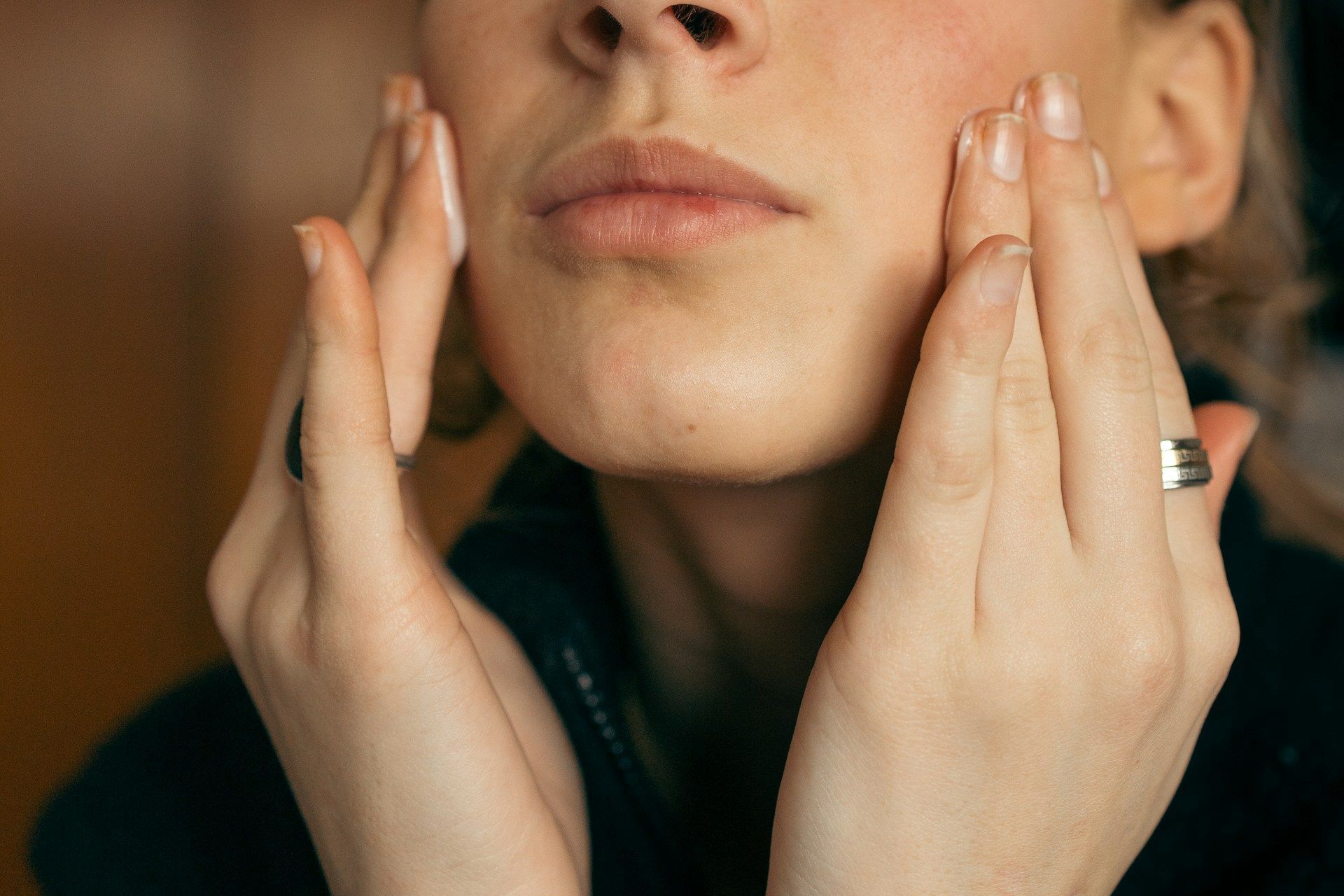Dr. Cameron Kuehne Explains How to Tell If You Have Sleep Apnea

Sleep apnea is a serious condition that disrupts your breathing while you sleep. This can lead to poor sleep quality and other health issues. If you're in Meridian and worried about sleep apnea, Dr. Cameron Kuehne at The Center for Sleep Apnea and TMJ can help. Understanding the signs and symptoms can help you take the necessary steps to improve your sleep and overall health.
Many people with sleep apnea experience loud snoring and sudden awakenings due to trouble breathing. These episodes can be frightening and leave you feeling exhausted during the day. You may also experience morning headaches, dry mouth, and difficulty concentrating. Recognizing these symptoms is the first step toward finding relief.
Dr. Cameron Kuehne emphasizes the importance of identifying not just the symptoms but also the risk factors associated with sleep apnea. Conditions like obesity, smoking, and family history can increase your chances of developing this disorder. Knowing these risks can help you be more vigilant about your health.
In this article, Dr. Cameron Kuehne will explain the common signs of sleep apnea, risk factors, self-assessment techniques, and when to seek professional help. This information is designed to be clear and easy to understand, so you can take action toward better sleep and health.
Common Signs and Symptoms of Sleep Apnea
Understanding the signs and symptoms of sleep apnea is crucial for an early diagnosis. Dr. Cameron Kuehne highlights some common symptoms that you should be aware of:
- Loud Snoring: One of the most common signs is loud, persistent snoring. This usually disrupts your sleep and the sleep of others around you.
- Gasping for Air during Sleep: People with sleep apnea often wake up suddenly, gasping for air. These interruptions in breathing may go unnoticed by the person but can be observed by a sleep partner.
- Daytime Tiredness: Despite sleeping for 7-8 hours, you might still feel very tired during the day. This happens because sleep apnea disrupts the sleep cycle, preventing deep restful sleep.
- Morning Headaches: Frequently waking up with a headache could be a sign of poor oxygen flow during sleep.
- Difficulty Concentrating: Lack of quality sleep can make it hard to focus during the day, affecting your work and daily activities.
Dr. Cameron Kuehne stresses that if you experience any of these symptoms regularly, it's important to seek further evaluation. Early recognition can lead to timely treatment and improved quality of life.
Risk Factors Associated with Sleep Apnea
Certain risk factors can make you more likely to develop sleep apnea. Dr. Cameron Kuehne explains these risk factors to help you understand your own risk level.
- Obesity: Being overweight is one of the biggest risk factors for sleep apnea. Extra fat around the neck can obstruct breathing during sleep.
- Age: While sleep apnea can occur at any age, it is more common in older adults. As you age, the muscle tone in your throat tends to decrease, making airway collapse more likely.
- Gender: Men are more likely to develop sleep apnea than women. However, the risk for women increases, especially after menopause.
- Family History: If sleep apnea runs in your family, your chances of having it are higher. Genetics can influence the structure of your airways and how you breathe during sleep.
- Alcohol and Smoking: Consuming alcohol relaxes throat muscles, increasing the risk of obstruction. Smoking can cause inflammation and fluid retention in the upper airway.
Knowing these risk factors can help you take proactive steps in assessing your risk for sleep apnea. Dr. Cameron Kuehne advises paying close attention to these factors and discussing them if you have concerns about your sleep health.
Self-Assessment Techniques for Identifying Sleep Apnea
Dr. Cameron Kuehne suggests several self-assessment techniques to help you determine if you might have sleep apnea. While these methods are not a substitute for professional diagnosis, they can provide valuable insights.
1. Sleep Diary:
Keep a diary of your sleep patterns, noting any symptoms like loud snoring or frequent awakenings. Record how you feel in the morning and throughout the day. This can help you identify patterns and share details with your doctor.
2. Partner Observations:
Ask a partner or family member to observe your sleep habits. They can watch for signs like snoring, gasping, or pauses in breathing. Sometimes others notice things that you might miss.
3. Online Questionnaires:
Take online sleep apnea questionnaires that ask about your symptoms and risk factors. These can give you a preliminary idea of whether you might have sleep apnea.
4. Video Recording:
Use a camera or smartphone to record yourself sleeping. This can help you observe snoring, pauses in breathing, or restless movements.
By utilizing these self-assessment techniques, you can gather useful information to discuss with Dr. Cameron Kuehne. This preliminary self-assessment can be an important step toward getting the help you need.
Dr. Cameron Kuehne’s Recommendations for Seeking Professional Help
When it comes to seeking professional help for sleep apnea, Dr. Cameron Kuehne has some important recommendations. Consulting with a qualified professional can ensure you get the right diagnosis and treatment plan.
1. Consult Your Primary Doctor: Your primary doctor can be the first point of contact. Discuss your symptoms and concerns during a regular check-up. They can refer you to a sleep professional for further evaluation.
2. Visit a Sleep Specialist:
Professionals like Dr. Cameron Kuehne at The Center for Sleep Apnea and TMJ have the expertise to diagnose and treat sleep apnea. They can perform thorough evaluations to understand your condition better.
3. Discuss All Symptoms: Be sure to mention all your symptoms, even those you might think are unrelated. This includes snoring, daytime tiredness, morning headaches, and any sleep disruptions.
4. Follow Up on Recommendations: After an initial consultation, follow the specialist’s recommendations for further tests or treatments. This may include lifestyle changes, monitoring, or specific therapies that can improve your sleep quality.
Dr. Cameron Kuehne emphasizes the importance of seeking help early. Treating sleep apnea promptly can improve your overall health and quality of life. By following these steps, you can ensure you receive the care and support you need.
Conclusion
Sleep apnea is a condition that affects many people, but recognizing the signs and seeking help can make a big difference. Dr. Cameron Kuehne at The Center For Sleep Apnea and TMJ in Meridian focuses on helping patients understand and manage their condition. By being aware of common symptoms like loud snoring and daytime tiredness and knowing the risk factors such as obesity and smoking, you can take proactive steps to assess your risk.
Using self-assessment techniques like maintaining a sleep diary and asking a partner for observations can provide valuable insights. These methods can help you gather information that will be useful during your consultation with a professional. If you suspect you have sleep apnea, Dr. Cameron Kuehne’s recommendations for seeking professional help can guide you through the process of getting a proper diagnosis and effective treatment.
Don’t let sleep apnea disrupt your life any longer. Contact us at
The Center for Sleep Apnea and TMJ in Meridian to schedule a consultation with Dr. Cameron Kuehne. Your journey to better sleep and improved health starts here. Call us today!










